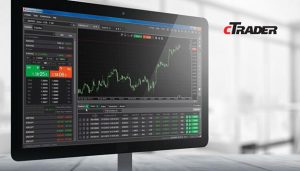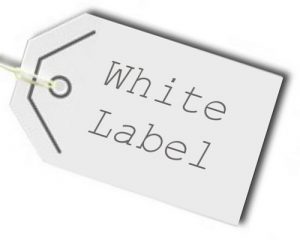How Can Forex Brokers Generate New Leads, Traffic, and Increase Marketing Presence? – An Analysis of Forex Broker Marketing Challenges

We are often approached by new forex brokers seeking guidance as it relates to marketing and client acquisition. This happens to be a common problem that newly established forex brokers face: once the broker has successfully activated an MT4/MT5 white label, built their website, and made all the necessary preparations required to launch the business, the broker finds itself struggling to gain the attention of new traders.
Forex Broker Marketing Consulting 101: There is More Than Adwords
Marketing for new brokers and white labels can be intimidating at first glance. As an example, consider Google Adwords. This space is dominated by some of the largest players in the industry, where the costs of forex related terms can approach astronomical levels that simply aren’t realistic for a new brokerage. In fact, new FX brokers can easily see marketing dollars vanish with little or nothing to show for, especially when a click (known as an impression in marketing lingo) only guarantees a quick glance at the broker’s website.
The takeaway is that there are other approaches to marketing in the FX space besides relying on Google Adwords. Although this fact may appear obvious, many new forex brokers simply don’t realize the variety of marketing tools they have at their disposal. Furthermore, those who may be aware of their options may not understand how best to utilize them.
How Can Forex Brokers Best Take Advantage of Social Media Marketing?
Facebook and Instagram are two alternatives to consider that don’t have the high barriers to entry that Adwords presents. Due its massive user base and targeting capabilities, it’s safe to say that most forex traders have either a Facebook or Instagram account, and in some cases both.
The beauty of Facebook when compared to Google Adwords is that it’s much easier to target and market to very specific niches, forex trading being one of them. There is one catch worth considering, namely that Facebook has become stricter about the types of services approved for marketing, meaning that expertise is required to ensure that an ad account is not only approved but maintained over time.
There are also other social media platforms that brokers can experiment with. LinkedIn, for example, is an excellent way to target institutional traders and businesses. FX brokers shouldn’t ignore YouTube either. It will require more effort to build a YouTube channel but can also be a successful tool with the proper investment of time and resources. Finally, a positive Twitter following may also be useful if the broker intends on promoting services like education and trading tips.

Introducing Broker (IB) Relationships are an Excellent Complement to a Forex Broker’s Marketing Programme
New forex brokers often fail to consider the fact that marketing doesn’t have to be limited to an organic, in house campaign. Nearly all successful FX brokers have a very strong referral agent / Introducing Broker network. If your broker doesn’t offer an affiliate / IB program then you are missing out on untapped revenue potential.
Similar to an organic marketing campaign, it requires time to build a network of IBs and affiliates, so don’t expect to see results overnight. Nevertheless, it’s a goal that brokers can work towards as a referral network is an excellent complement to a forex broker’s in house marketing campaign.
Forex Lead Generation & Marketing Consulting
If your new FX broker doesn’t wish to invest the time and resources into an organic marketing campaign, or if you are open to exploring a service that can fill in the gap while you develop your own custom branding, we remain at your disposal. Our Forex Consulting team offers lead generation, traffic, and general marketing consultation services to forex brokers of all shapes and sizes.
We have extensive industry experience and can accommodate nearly all regions and language needs.
To explore our services in more detail, don’t hesitate to contact us today!
Banking & Payment Challenges for Unlicensed / Unregulated Offshore Forex Brokers

Whether you would like to start your own forex broker, or are currently operating an existing, unregulated brokerage, chances are you’ve already run into challenges with payment providers. Experience has shown that it’s wise to sort out payment and banking options before your broker becomes too large.
Acquiring new clients is challenging enough, and can become ever the more frustrating when your forex broker runs into nightmare scenarios that some of our clients have faced: freezing of payments, bank account closure or discovering a payment provider has outright disappeared.
Why is Obtaining a Bank Account so Difficult for New or Unlicensed Offshore Forex Brokerages?
Back in the early 2000s, the online forex & CFD market was in its early growth stages so new forex brokers could obtain bank accounts and other payment solutions with relative ease. The reason a new forex broker could more easily obtain a bank account in the past was due to the fact that the global banks themselves didn’t fully understand forex & CFD trading. Additionally, in the early 2000s there was less regulatory oversight for the trading of forex & CFDs, meaning banks were simply less cautious with new clientele. This situation dramatically changed, especially in the past 3 to 4 years, where banks have become far more cautious about the online forex trading industry as a whole.
The reason why it is now more difficult for offshore FX brokers to obtain bank account is that forex trading happens to fall into a high risk category for banks and payment service providers. Unfortunately, there have been too many brokers, mostly unregulated, that have given the forex industry a bad reputation. As a result, the entire reputation of the online forex trading industry as a whole has suffered. For this reason, it is now very difficult to obtain a banking solution if your broker is registered in an unregulated offshore region.

Forex Brokers Must Exercise Caution with Unregulated Payment Service Providers (PSPs) and Newly Formed Banks
Unregulated forex brokers registered offshore are often tempted to seek out creative options when it comes to securing banking solutions. We’ve seen consultants offering bank accounts in Eastern Europe, Balkan countries, or relatively unknown islands. From our experience, it is best to avoid these types of banking solutions since they rarely work out in the long run. There is a high probability that the account will be closed, or worse that the bank simply freezes the funds for an indefinite period. Sadly, we’ve heard far too many horror stories about these type of banking providers, leaving our consulting team very skeptical.
Similar to our advice concerning bank accounts, it’s important to carefully research any payment service provider (PSP) that is operating unlicensed. We strongly urge forex brokers to steer clear from unregulated and unlicensed PSPs. Because there are so few payment solutions available for unregulated forex brokers, many unlicensed payment solution providers have emerged that may appear to offer a viable solution. Unfortunately, we’ve encountered far too many clients who have had their funds either frozen or lost completely, which is why we strongly urge any broker considering these solution providers to exercise caution.
The Bottom Line: Banking is a Challenge for Unregulated Forex Brokers
The simple truth is that attempting to obtain a bank account for an unlicensed, offshore forex broker is almost impossible. There are, however, a few options to consider. If banking is essential to the future success of your forex brokerage, then it makes to think about obtaining a forex broker license. Secondly, if you’ve found a banking or payment solution but aren’t certain about its credibility, we are happy to provide our analysis. Finally, we have a unique idea for those willing to think a little bit “outside the box.” Feel free to reach out to us to learn more about it.
Forex Consulting – License & Regulation Consultation Services for FX Brokers
Whether you are a looking to start a new forex broker or a represent an existing FX brokerage that is currently in the process of selecting a PSP provider, payment gateway or bank account, we are more than happy to provide our professional assessment.
To receive our opinion about a particular PSP, discuss payment options in more detail, or ask a simple question, don’t hesitate to reach out to us today!
Why Forex Brokers Should Offer cTrader to Their Clients – 4 New Updates Reveal the Answer

In the competitive world of forex & CFD trading platforms, cTrader has continued to push the envelope by offering a comprehensive product suite to its users. It would be a mistake to assume all traders are made the same, having the exact same needs and requirements. For this reason, FX brokers should strongly consider offering a portfolio of trading platforms to their client base in order to cast the widest net possible, cTrader being an excellent case study.
4 Reasons Your Broker Should Strongly Consider Adopting cTrader Technology
Market Sentiment Indicator – This indicator has grown in popularity over the years as it provides an excellent snapshot into the collective view of market positioning. An added bonus is that cTrader offers this data in real time so traders can feel confident the data accurately reflects current market conditions. Finally, cTrader boasts a global client base, ensuring that the sentiment data has been smoothed over for regional and other outlying factors that may otherwise distort it.
Dynamic / Multi-Tier Commissions Available Directly in the Software – Developing and growing IB relationships is an integral aspect of any successful forex brokerage. FX brokers working with cTrader will be happy to know that dynamic IB commission structures are built within the platform itself. Rather than relying on a plugin or external CRM to handle multi-level rebates, in cTrader all calculations happen within the platform itself, making it a breeze to manage multiple IB / Partner relationships.

Deposit Bonus Calculations – Deposit bonuses in the FX industry have grown in popularity, especially in the past few years. Although simple in appearance, properly implementing a deposit bonus scheme requires a fair amount of logistics and planning. A major advantage of the cTrader platform is that the backend has been programmed to handle the most popular type of deposit bonus structures such as no deposit bonuses, volume based bonus payouts and account credits. Because this feature is native to the cTrader platform, no external software solution or plug-in is required for FX brokers using cTrader to offer deposit bonuses to their clients.
cTrader Offers Reporting Flexibility – Finally, by making raw, real time data easily available, cTrader is able to accommodate the various reporting and compliance changes currently happening around the globe. The ease of generating reports in cTrader makes regulatory paperwork a much easier process for FX brokers to manage.
Check Out cTrader Today and Experience the Difference
cTrader was developed by Spotware, a Cyprus-based technology provider that has been active in the market since 2010. While the overview we provided is quite helpful, it has only scratched the surface as far as the software’s full capabilities are concerned. For this reason, we encourage you to either check out a demo of cTrader today or to contact our team to learn more about the advantages of adding cTrader to your broker’s suite of software products.
Forex Consulting – FX Broker Software Expertise & Analysis
Our mission at Forex Consulting is to provide a comprehensive overview of the major types of software in the online forex & CFD space. In addition, we also share our thoughts and analysis on all aspects of the industry, from FX broker technology all the way to guidance on licensing, banking and payments.
If you have any questions about cTrader, or the best forex trading software for launching a new brokerage, don’t hesitate to contact one of experienced consultants today. We look forward to hearing from you!
What is Slippage in the Forex (Foreign Exchange) Market?

Slippage is one of the many bits of lingo you’ll often hear investors speak about when they are trading in the forex market. Like any niche industry, the world of forex & CFD trading is filled with a variety of acronyms and terminology that can often be confusing to newcomers.
One of the reasons we created our Forex Trading Glossary is to help new traders more easily navigate the many new terms and industry jargon they will come across when trading forex & CFDs. If you find this article helpful, make sure to check our glossary for more answers to your questions. Getting back to the subject of When it comes to the concept of slippage, it turns out that it’s not as complicated of as you may have initially thought.
For those curious about understanding the meaning of slippage in the forex market, we’ll demystify the concept by providing some basic examples to help drive across the point. Let’s start by defining what slippage is.
How is Slippage in the FX Market Defined?
A simple definition of slippage in the forex market is the execution of a market order, or stop order at a different price than what was requested by the trader. For example, let’s say you decide to buy EUR/USD at the current market price of 1.2500 but your trade gets executed instead at 1.2510 (10 points worse than the requested price). In this hypothetical example, you experienced 10 points of what we’ll refer to as negative slippage.
Due to the fact that the order in the example above was not filled at the requested price, rather a price that was slightly worse, is why this concept is known as slippage. It’s important to highlight that slippage doesn’t always have to be negative. In fact, slippage can work in the favor of traders as well. The most common form of what’s referred to as positive slippage often happens when using limit orders, something we’ll discuss at greater length in a little bit.
Why Does Slippage Occur When Trading Forex & CFDs?
Slippage is common in all markets, not just the forex industry. Those new to forex trading, however, will often associate slippage with broker manipulation. Now, it happens to be correct that unregulated forex brokerages are often guilty of fixing the market against their clients, however, it would be wrong to assume slippage is ever and always a manipulative tactic used by greedy brokers. As mentioned, this is a concept not limited to the FX market but all types of trading products such as futures, stocks, and bonds.
The reason slippage occurs is the fact that there simply is not an unlimited amount of liquidity, also known as pricing availability, at each specific price level in the FX market, or any market for that matter. When there is no supply, also known as liquidity, at the price rate you’ve requested, then the market must adjust to the next available price level.

Understanding the Meaning of Slippage in the Forex Market
Now that we have defined slippage, an example should help to better understand how this concept works in practice. When trading currencies, the interest rate that central banks offer has a significant impact on the future price of the asset. The reason is that as the interest rate rises, it becomes advantageous to shift money into the currency offering a higher yield and away from a currency offering a less competitive yield.
Because of this simple fact, currency prices will often exhibit extreme movements when central banks either lower or raise their interest rates. For example, let’s imagine you were trading GBP/USD just minutes before a scheduled interest rate announcement. Before the news, the price of GBP/USD was at 1.3700. The announcement is then released, namely that the Bank of England increased their target rate by 75 basis points, sending GBP/USD to 1.4000 in a matter of seconds.
The hiking of interest rates is bullish news for a currency, which is why the price of the British pound went up in our example. With such positive news, would you consider selling GBP/USD? Obviously not. This is why the price spiked, or jumped all the way to 1.4000
It’s clear that selling at 1.3700 makes no sense but at some point the price will become too high, prompting sellers to enter the market. Given the example above, how does slippage factor into the equation?
Well, If you were attempting to trade around this news announcement, you’d most likely experience slippage. Why? Because nobody would be willing to sell to you at 1.3700 for the reasons previously mentioned. The way all markets function is that if you want to buy, you must find a seller, and vice versa. For this reason, if you had a trade at 1.3700 and attempted to place a buy order around the announcement, you most likely would have experienced slippage, and as a result received a worse price for your order.
The example above illustrates one of the main reasons why placing trades around news announcements can be highly risky. As a final thought, if you had set a limit or take profit order in same example, you may receive what’s known as positive slippage because the order would be closed at the next available price, which often is better than the price you requested.
Do You Require Further Guidance? Don’t Hesitate to Contact Our Team of Forex Industry Consultants Today!
We hope the examples in today’s article were useful in helping you to better grasp the concept of slippage when trading forex. If you are interested in learning more about trading the FX market, or are simply looking for a reputable forex broker to open an account with, the Forex Consulting team is more than happy to assist you further.
To schedule a call with one of our seasoned FX consultants, don’t hesitate to reach out to us today!
How to Choose the Best MT4 / MT5 White Label Provider? – 4 Helpful Guidelines

Selecting the best MT4 or MT5 white label provider for your new forex broker involves careful consideration. Because of set up fees and the time involved in obtaining an MT4 / MT5 white label, it’s important to carefully weigh these factors before launching your forex brokerage.
Our expertise in the foreign exchange industry and many years of experience make the Forex Consulting team a valuable resource for successfully navigating the many possibilities you’ll have when selecting a forex white label provider. We’ll outline some guidelines in today’s article that will no doubt be useful in helping you choose the best MT4 / MT5 white label partner for your new forex brokerage.
#1. Is The White Label Provider Regulated?
Regulation is an excellent way to determine if you are working with a reputable MT4/MT5 white label provider. Because obtaining a forex broker license requires a significant commitment of capital and resources, it’s an excellent factor to use in your decision making criteria. Consider the fact that office space, local staff members, accounting, and regulatory reporting are just some of the requirements for maintaining a forex broker license.
On the other hand, an unlicensed MT4/ MT5 white label provider doesn’t have to adhere to the same set of requirements, which poses a potential risk for a couple of reasons. First, a forex broker that has gone through the steps required to obtain a license is in a better financial position than an unregulated white label provider. Secondly, obtaining a forex broker license doesn’t happen overnight. Forex brokers that obtain regulation are interested in establishing a long term, forward looking brokerage, making a partnership with a licensed MT4 white label provider a more stable option.
#2. What Type of Trading Products Does The White Label Provider Offer?
The pricing, spreads, and trading products offered by each MT4 / MT5 white label technology firm will vary from provider to provider. Before you sign up for a white label, your new brokerage should first determine the types of trading products that you wish to offer to your clients.
Cryptocurrencies, for example, are now a popular trading product, with many forex brokers offering cryptocurrency trading as a complement to their suite of trading instruments. It’s important to highlight that some white label providers won’t able to provide liquidity in cryptocurrency. The same fact holds true not just for cryptocurrencies but certain stock CFDs, commodities, metals as well as more exotic forex pairs. For this reason, we strongly recommend choosing the trading products you intend to offer your clients before officially engaging with a white label provider.

#3. MT4 Group, Manager, Symbols and Other Software Limitations
The MetaTrader 4 software system has a finite number of groups, managers, and symbols associated with each server license. When deciding to sign up with a specific MT4 white label provider, it’s important to ask up front about the availability and limitations of the white label offering.
In some cases, the MT4 white label provider will have a limited offering for new brokers, which may be a reason to choose a more flexible provider, or to consider MT5. We understand, though, that some brokers prefer working with MT4 due to the existing popularity of the system, which is why the points in this section are worth noting.
We also suggest determining the type of spread mark ups and account tiers (Mini, Standard, VIP) you plan to offer your clients in advance. Mark up conditions and the ability to apply these settings to specific account groups are yet another set of limitations that MT4 white label providers will have to address; from our perspective, it is best to know the full picture as it relates to product availability because this information will be valuable in determining the best MT4 white label provider for your new brokerage.
#4 Does the White Label Provider Offer a CRM / Trading Portal?
Offering your clients the ability to easily open a live trading account, manage platform changes like passwords or address updates, make a deposit, as well as request a withdrawal are all essential services required for the success of any new forex brokerage. Not all, but most white label providers will offer CRM integration, commonly referrred to as a Trading Portal / Client Cabinet, to their new white label partners as part of the total package.
In order to have a competitive product offering, we strongly suggest integrating a CRM / Trader’s Room software solution into your FX broker’s website – if the MT4 / MT5 white label provider you are speaking with doesn’t offer this service, then we recommend searching for a different white label provider.
Forex Consulting Expertise – Guidance in Selecting the Best MT4 / MT5 White Label Provider for your New FX Broker
If you are currently in the process of selecting an MT4 or MT5 white label partner for your new forex brokerage, we are more than happy to assist you along each step of the way. Our team of FX consultants have successfully guided a variety of forex brokers with the set up of their MT4 & MT5 white labels, making the Forex Consulting team the ideal partner for establishing a new forex white label.
To learn more about setting up your MT4 / MT5 white label software, don’t hesitate to reach out to us. Our team of experienced consultants remain at your disposal.








